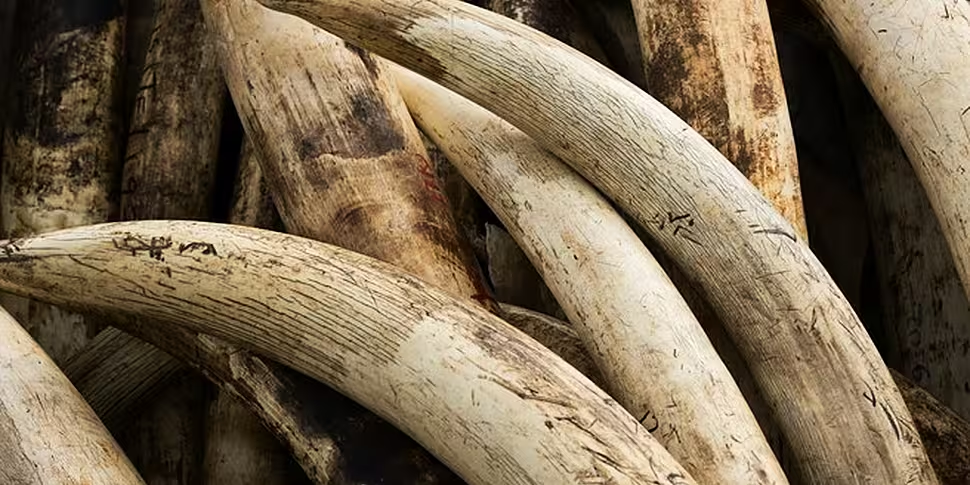More than 100 tons of ivory will be burned today in a gesture Kenya hopes will shock the world into ending the trade in elephant tusks.
Eleven pyres of tusks have been piled up, ready to be set alight in Nairobi's national park.
The estimated 105 tons of ivory and 1.4 tons of rhino horn is believed to be seven times the size of any stockpile burned before.
It will mean the vast majority of the Kenya's ivory collection is destroyed.
On the black market, such a quantity of ivory could sell for more than $100m, while the rhino horn could raise as much as $80m.
Kenya's President Uhuru Kenyatta will be the first to ignite the tusks at a ceremony attended by a number of African heads of state.
They are expected to burn for several days.
Speaking at a Giants Club wildlife summit on Friday, Mr Kenyatta demanded a "total ban" on trade in ivory to prevent the extinction of Africa's embattled elephant and rhino populations.
"The future of the African elephant and rhino is far from secure so long as demand for their products continues to exist," he told the meeting of African leaders and conservationists.
"To lose our elephants would be to lose a key part of the heritage that we hold in trust. Quite simply, we will not allow it," he said.
"We will not be the Africans who stood by as we lost our elephants."
The estimated 16,000 tusks and pieces of ivory due to be set alight represent just a fraction of the 30,000 elephants believed to be killed in Africa every year.
Demand for ivory, most recently in Asia, where raw tusks sell for around $1,000 a kilo, has resulted in the number of elephants on the continent plunging from 1.2 million in the 1970s to around 400,000 today.
There are now fewer than 30,000 rhinos.
The ivory trade was banned by the Convention on International Trade in Endangered Species of Wild Fauna and Flora (CITES) in 1989.
China, however, allows the resale of ivory bought before the ban.
Activists say this serves as a cover for illegal imports.
Conservationists warn elephants could become extinct in the next 50 years.









